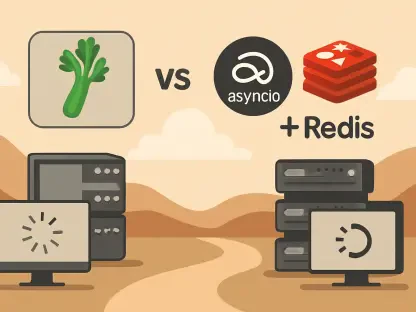In an era where software development demands ever-increasing efficiency, a significant leap forward has emerged with Google’s latest move to embed its advanced AI technology into a powerful coding platform, promising to transform how developers approach their craft. By blending human ingenuity with machine intelligence, this integration tackles repetitive tasks and complex challenges alike, signaling a shift toward smarter, more collaborative coding environments. The focus is not just on speed but on creating tools that adapt to the nuanced needs of programmers, potentially reshaping workflows across individual and enterprise levels. This advancement arrives at a time when the industry is hungry for innovation, making it a pivotal moment for developers seeking to stay ahead in a competitive landscape.
Enhancing Coding Productivity with AI Tools
Streamlining Workflows through Smart Integration
The fusion of Google’s Gemini CLI with the Zed editor marks a notable stride in enhancing coding productivity by embedding AI directly into the development environment. Known for its exceptional speed and multiplayer collaboration features, Zed provides an ideal foundation for such an integration. Gemini CLI, an open-source tool designed to assist with coding tasks, brings capabilities like code generation and refactoring right into the editor’s interface. This setup allows developers to execute complex changes across projects without toggling between multiple tools, saving valuable time. The seamless interaction between human input and AI assistance fosters a more fluid workflow, enabling programmers to focus on creative problem-solving rather than mundane processes. This approach reflects a broader industry shift toward embedding intelligent systems within everyday tools, aiming to boost efficiency at every turn.
Building Custom Solutions with AI Agents
Beyond basic assistance, this integration empowers developers to craft custom AI agents tailored to specific project needs, a feature that sets it apart from traditional coding aids. Through Zed’s innovative Agent Client Protocol, compatibility with various AI agents becomes possible, offering unprecedented flexibility. Unlike more rigid frameworks found in other editors, this openness encourages experimentation and personalization, catering to diverse programming styles. Developers can now design agents that assist with planning, executing code changes, or even automating repetitive tasks across large-scale projects. Such granularity in control underscores the potential for AI to act as a collaborative partner rather than just a background tool. This development not only enhances individual productivity but also paves the way for teams to innovate within a shared, dynamic platform, aligning with the evolving demands of modern software creation.
Competitive Edge and Future Implications
Standing Out in a Crowded Market
In a landscape filled with AI-driven coding tools, the partnership between Gemini CLI and Zed offers a distinct competitive advantage through its deep integration and accessibility. Unlike competitors that may limit AI functionality to specific environments, Gemini’s ability to operate across terminal and graphical interfaces appeals to a wide range of developers. Its command-line strengths resonate particularly with those who prioritize such workflows, while its adaptation into Zed’s graphical editor broadens its reach. For enterprise users, features like code review and compliance tools—hinted at in Google’s broader documentation—suggest scalability and security benefits that could extend into this platform. This positions the integration as a versatile solution, capable of addressing both individual and organizational needs, and highlights a trend where AI is becoming an integral part of the development pipeline.
Shaping the Future of Development Environments
Looking ahead, this collaboration could redefine how coding environments evolve by blending human expertise with machine precision in unprecedented ways. Zed’s foundation in Rust ensures optimal performance, while Gemini’s evolving AI capabilities promise continuous improvements in functionality. The open-source nature of Gemini CLI further invites community contributions, fostering a modular ecosystem ripe for innovation over the coming years. The potential to incorporate additional AI agents into Zed signals a shift toward highly customizable platforms that adapt to varied developer preferences. This forward-thinking approach not only accelerates decision-making in team settings but also sets a precedent for future partnerships between AI tools and editors. As these technologies mature, they are likely to influence industry standards, pushing the boundaries of what coding tools can achieve.
Navigating Adoption Challenges
Despite the promise of this integration, hurdles to widespread adoption remain a critical consideration for its long-term success. Concerns around AI accuracy and data privacy have surfaced, with some pointing to potential latency issues in offline scenarios due to reliance on cloud-based models. Additionally, developers accustomed to traditional methods may resist adopting such advanced tools, highlighting the need for robust training and support mechanisms. Addressing these challenges will be essential to ensure that the benefits of AI assistance are realized without disrupting established workflows. Balancing innovation with practicality remains a nuanced task, as the industry navigates diverse perspectives on how such technologies should be implemented. Overcoming these barriers could determine whether this integration becomes a staple in coding environments or remains a niche experiment.









